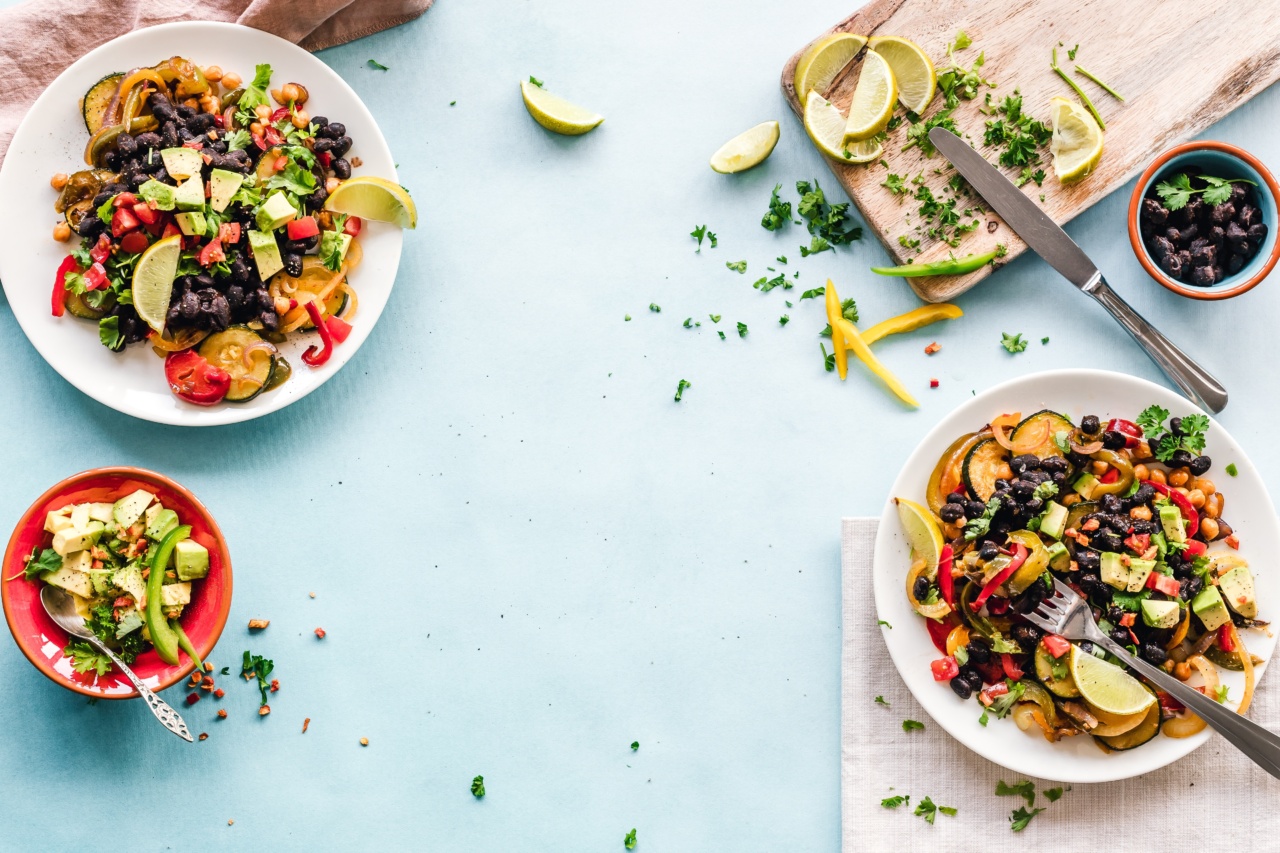Choosing to become a vegetarian is a personal decision that can have many health and ethical benefits.
However, before making this dietary change, it is important to understand what it means to be a vegetarian and the potential challenges that may arise. In this article, we will explore the key things to consider before becoming a vegetarian.
1. Understand the Different Types of Vegetarianism
Vegetarianism is not a one-size-fits-all concept. There are different variations of vegetarian diets, each with its own set of rules and restrictions. The major types of vegetarianism include:.
- Lacto-Ovo Vegetarian: This is the most common type of vegetarianism where individuals avoid meat, poultry, and fish but still consume dairy products and eggs.
- Vegan: Vegans do not consume any animal products, including dairy, eggs, and honey.
- Lacto Vegetarian: Lacto vegetarians avoid meat, poultry, fish, and eggs but consume dairy products.
- Ovo Vegetarian: Ovo vegetarians avoid meat, poultry, fish, and dairy products but consume eggs.
- Pescatarian: Pescatarians avoid meat but consume fish and seafood.
Understanding these different types of vegetarianism will help you determine which path is right for you.
2. Plan Your Meals to Ensure Adequate Nutrition
Transitioning to a vegetarian diet requires careful meal planning to ensure you are receiving all the necessary nutrients. Meat and animal products are rich sources of protein, iron, vitamin B12, and omega-3 fatty acids.
As a vegetarian, you will need to find alternative plant-based sources for these nutrients.
Protein can be obtained from sources like legumes, tofu, tempeh, quinoa, and nuts. Iron can be found in foods such as spinach, lentils, quinoa, and fortified cereals.
Vitamin B12 is primarily found in animal products, so vegetarians may need to take supplements or consume fortified foods like plant-based milk and breakfast cereals. Omega-3 fatty acids can be sourced from flaxseeds, chia seeds, walnuts, and algae supplements.
Meal preparation and consulting a registered dietitian can help you create a well-balanced vegetarian diet that provides all the necessary nutrients for optimal health.
3. Educate Yourself about Hidden Animal Products
Many foods that appear to be vegetarian-friendly may contain hidden animal products.
For example, certain cheeses are made using animal rennet, gelatin is derived from collagen found in animal bones and connective tissue, and some alcoholic beverages are clarified using animal-derived products like isinglass (derived from fish bladder).
By familiarizing yourself with common ingredients that may not be vegetarian-friendly, you can make informed choices and avoid consuming animal products inadvertently.
4. Be Prepared for Social and Cultural Challenges
Transitioning to a vegetarian lifestyle may present social and cultural challenges. Family gatherings, dining out with friends, or attending events with limited vegetarian options can be testing at times.
It is crucial to be prepared for such situations and have open conversations with loved ones and peers about your dietary choices.
When dining out, it is helpful to research restaurants beforehand and look for vegetarian-friendly options on the menu. Explaining your dietary preferences to servers can also ensure your needs are met.
Additionally, bringing a vegetarian dish to gatherings can help ensure that there is at least one dish for you to enjoy.
5. Consider the Environmental Impact
Going vegetarian can have a positive impact on the environment. The meat industry is a significant contributor to greenhouse gas emissions, deforestation, and water pollution.
By reducing or eliminating meat consumption, you can help reduce your carbon footprint and contribute to a more sustainable future.
Understanding the environmental benefits of vegetarianism can serve as a source of motivation and reinforce your commitment to this lifestyle choice.
6. Take Supplements if Necessary
Although a well-planned vegetarian diet can provide all the necessary nutrients, certain individuals may require supplements to meet their nutritional needs.
Vitamin D deficiency is common, especially for vegetarians living in areas with limited sunlight exposure. Considering a vitamin D supplement can help maintain healthy levels.
Additionally, omega-3 fatty acids found in fish oil can be supplemented with algae-based omega-3 supplements.
Consulting with a healthcare professional or registered dietitian can help determine if you need any specific supplements to support your vegetarian diet.
7. Be Mindful of Food Labels
Reading food labels is crucial for vegetarians, as it helps identify any hidden animal ingredients. Some common non-vegetarian additives to look out for include gelatin, cochineal (made from insects), and lard (animal fat).
Being aware of what to look for on food labels can help you make informed decisions when purchasing groceries.
8. Prepare for Initial Changes in Digestion
Switching to a vegetarian diet can initially lead to changes in digestion. The increased fiber intake from plant-based foods can cause temporary bloating and gas. However, as your body adjusts to the new diet, these issues usually resolve.
Enjoying a variety of plant-based foods, staying hydrated, and gradually increasing your fiber intake can ease the digestive transition.
9. Seek Support and Connect with the Vegetarian Community
Joining online vegetarian groups and connecting with like-minded individuals can provide valuable support and resources. They can offer advice, share recipes, and help you navigate any challenges that may arise during your vegetarian journey.
Additionally, seeking support from friends and family who understand and respect your choices can make the transition smoother.
10. Embrace the Journey and Enjoy the Benefits
Becoming a vegetarian is a personal and empowering decision. Embrace the journey and focus on the many benefits it brings, including improved health, reduced environmental impact, and the chance to live in alignment with your personal values.
Remember, it’s okay to make mistakes and learn along the way. Experiment with new recipes, explore different vegetarian cuisines, and savor this exciting chapter of your life!.






























